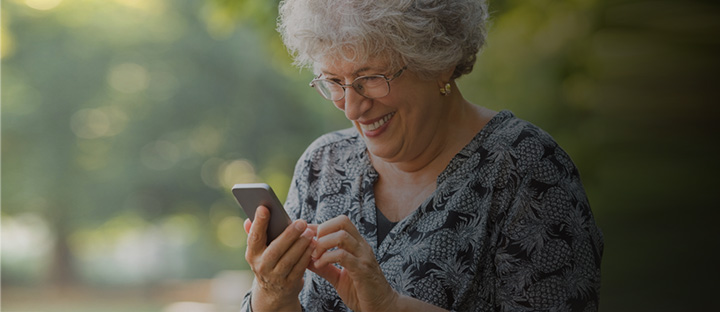An excerpt from an interview of Caring Connections participants by Geoff Norcross, host of Think Out Loud on OPB. This episode aired Friday, June 25th.
Norcross: Emily, can you talk first about the problem?
Emily Freeman, Council on Aging Outreach Manager: A poll released last month by the University of Michigan revealed that twice as many people over 50 felt more isolated from others than three years ago. But isolation among seniors is nothing new. That’s one of the reasons the Council on Aging launched the Caring Connections program in 2020. It pairs seniors who are experiencing loneliness with callers who will check in on them every week. Currently, 50 seniors are in the program.
Norcross: You started this program last fall. How did you get it off the ground?
Freeman: We received a grant from Deschutes County Health Services and the Oregon health authority, totaling $75,000. That seed money enabled us to hire Mon Ami, a company that makes software to track programs like calling services. Then we connected all our Meals on Wheels clients, and about 20 agreed to join the program. And it has just kind of taken off from there.

Norcross: Yeah. Well, what’s the process like? How do you match your volunteers and your clients?
Freeman: When seniors join, we enter them into the system. We try to learn about the client — hobbies, past careers, that type of thing. And then select a volunteer who we think could be a good match for that participant.
Norcross: Well, we have a caller and a client, Roberta and Joyce. Roberta and Joyce, what do you like to talk about?
Roberta Nye: We talk about everything. I have four daughters, and Joyce has three. And the conversation just goes from one thing to another. Even in the beginning, we didn’t have a hard time connecting.
Norcross: Roberta, why did you decide you wanted to get involved?
Nye: Probably because of my relationships with my grandparents. And the phone was my primary way to talk to people through the COVID, and I just thought it was a great idea to connect with somebody.
Norcross: How long have you been talking?
Joyce Parker: About five months.
Norcross: And you’ve become friends over that time?
Parker: I think so. It’s something I look forward to in a week. And of course, not every week, as it worked out, that we could connect because things come up. We have things in common and many things not in common. Roberta is from the East Coast, and I’m basically from the Southwest. But that doesn’t really make a difference.
Norcross: Joyce, can you tell me why you decided to join this program?
Parker: I came here from Texas in November. And my daughter felt like I needed some contact with other older people. In February, she posted on Nextdoor.com to connect me with other older adults, and someone from the Council on Aging contacted her. So that’s how I got into the program.
Norcross: So, Roberta, what kind of connection do you feel that you’ve met with Joyce through this program?
Nye: We feel like we’ve become friends. And it’s very flexible. She’s just been delightful to talk to, and, as she said, we found a lot in common and yet a lot of differences, but it’s nice to share and learn things from other people.
Norcross: Emily, what kind of feedback are you getting from your clients and volunteers like Joyce and Roberta?
Freeman: We have great feedback. We have a lot of folks who will be lifelong friends after this. I have my own client that I have been talking to since November. I just spoke to him yesterday, and I said, “I’ll call you next week.” And he said, “Well, I sure hope so. I look forward to it.” Also, part of Caring Connections is a wellness check. Our volunteers are in this program because they genuinely care and have a passion for helping older adults.
Norcross: I wondered, what if you have a caller who’s on the phone with a client and the caller hears something that kind of makes them worry, or they hear something that is a warning flag for them, are they trained for that?
Freeman: Yes. When we onboard volunteers, we train them and go over protocols. So, suppose it’s something that’s not super urgent, like they need groceries or medication picked up. In that case, the volunteer can submit a recap through our software. And that comes straight to our email, so we’re notified and follow up. But, if it’s an immediate emergency like somebody’s having issues breathing, they call us, and we’ll call 911. Volunteers don’t have access to the client’s address for security reasons.
Norcross: As restrictions start loosening, what’s happening next with the program?
Freeman: We just received another grant from the Central Oregon Health Council for almost $138,000 to expand the program into Crook and Jefferson Counties, so we’re planning that launch. The second new aspect is that some clients and volunteers want to start visiting in person when safe. Of course, there will still be some people who don’t want to meet in person, and that’s totally fine. But we’re going to start offering people the option to meet in person if they’d like.
Norcross: Excellent. Thank you all very much. We’ve been speaking with Emily Freeman, who runs the Caring Connections program for the Council on Aging of Central Oregon, and Roberta Nye, one of the caller volunteers, and her client Joyce Parker.
Learn more about our Caring Connections program here.


